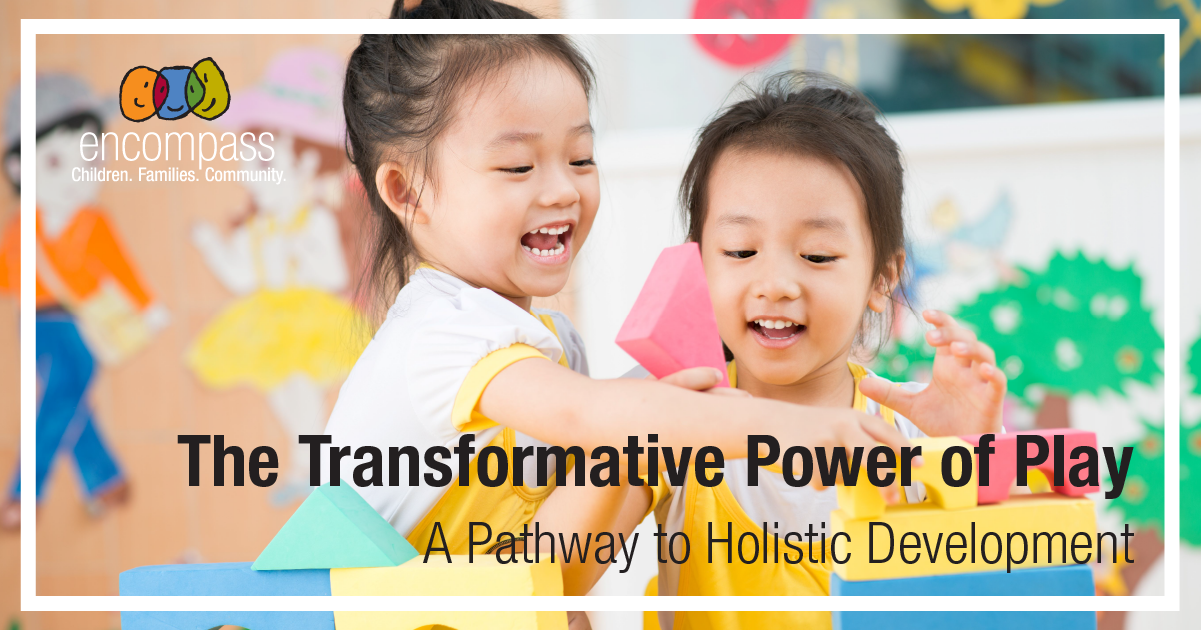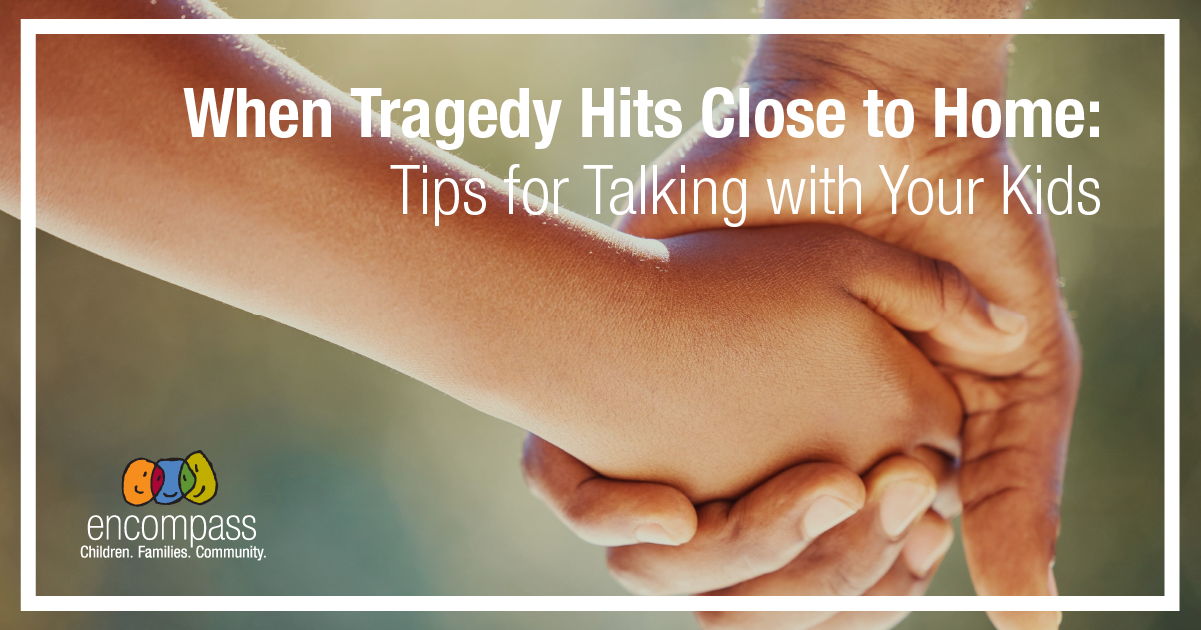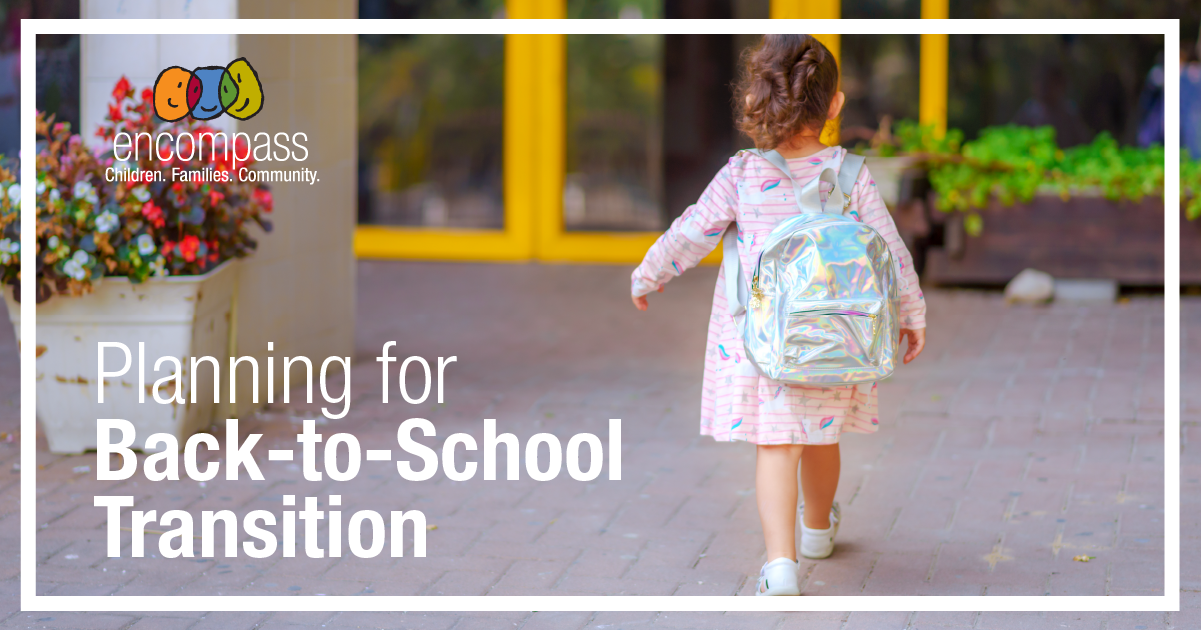Encompass Helps Teachers and Students Learn Skills to Better Succeed in School and Life Through an Innovative Curriculum
Encompass is a leader in supporting the development of executive function skills across its programs and among local early learning professionals. 
What a child learns before the age of 5 can directly impact his or her ability to hold a job, develop healthy relationships and deal with stress later in life—major factors that contribute to the overall health of a community.
This is one reason the quality of early learning programs is significant. For example, between the first day of preschool and the first day of kindergarten, young children are expected to learn how to focus on a task, control impulses and ask for help when needed. These are examples of executive function skills—the abilities that serve as the foundation all children need to succeed in school and life.
 Children don’t naturally develop executive function skills. These abilities must be nurtured by parents, teachers and caregivers during the earliest years. Research shows that fostering these abilities in young children improves academic performance, increases high school graduation and college completion rates—helping build a more productive workforce for our community.
Children don’t naturally develop executive function skills. These abilities must be nurtured by parents, teachers and caregivers during the earliest years. Research shows that fostering these abilities in young children improves academic performance, increases high school graduation and college completion rates—helping build a more productive workforce for our community.
>>click here for the science of executive function<<
Executive Function Development in Our Community Right Now
Encompass is a leader in supporting the development of executive function skills across its programs in education and pediatric therapy—and also coordinating a curriculum for local early learning professionals to improve the executive function skills of their students.
As the only organization in King County (and 1 of only 6 in Washington) to be selected to participate in a pilot program known as “Executive Function Learning Communities”, Encompass trained members of its staff and local early learning professionals in January 2014 using a professional curriculum to build knowledge of executive function and to support executive function in an early learning setting.
“Encompass strives to be on the cutting edge when it comes to research related to early childhood development, so imagine my excitement when we were invited to participate in a state-wide research study on the development and role of executive function skills in young children,” said Kerry Beymer, parenting support and education manager at Encompass.
>>click here for the full details of how Encompass participated in the study<<
The expertise and leadership in executive function skill development Encompass offers means the children in our community—especially those participating in Encompass programs—have the opportunity to be better prepared for school in terms of making good decisions, participating successfully in the classroom and adapting well to changing situations.
 Results of the Executive Function Curriculum
Results of the Executive Function Curriculum
Preschool students in our local executive function Early Learning Community were given a pre-test to benchmark executive function and a post-test approximately 100 days later to assess how intentional executive function skill development activities in the classroom affected students (this test is called the Minnesota Executive Function Scale).
Children’s scores improved over 100 days, and this was equally true for all age groups (3, 4, and 5 years).
“That means that researchers can say a real change has occurred; the difference was not just due to chance. We also can conclude that the improvements were genuine and not just due to teachers’ beliefs about the children. Gains in executive function mean that children will be better able to benefit from the lessons teachers give, and to manage their emotions and reactions when they play with their peers. This is an exciting first step in creating a program to help children learn self-control skills, which are crucially important for learning,” states Stephanie M. Carlson, Professor Institute of Child Development University of Minnesota, in a letter to participating professionals.
As we close 2014, phase 2 of this executive function skill development curriculum begins—and the focus is on “teaching the teachers” and more widely sharing the curriculum to help more early learning programs increase potential in the classroom.
“I’m recruiting all local early learning professionals to participate in this year’s Early Learning Communities,” says Beymer. “The curriculum has been edited down to just 9 weeks (from 20) and the testing administered to children has been streamlined with an automated tablet version of the test (versus manually giving it and scoring it).”
GET INVOLVED NOW
Parents and early learning professionals can get involved in developing executive function skills in the children of our community.
Parent education is a pillar of Encompass programming—the organization believes knowledge of executive function should be shared with parents and is leading a FREE Executive Function Parenting Workshop on Thursday, December 4th from 5:30-7pm at Virginia Mason in Issaquah. Walk away with information and resources to develop your child’s executive function skills now.
On December 3rd from 6:30-8:30, early learning professionals can join Kerry Beymer for a workshop on Supporting Learning in the Classroom through Play to earn STARS credits (discussion on how play builds executive function skills included).
For more information and to register for either workshop, contact Kerry Beymer, the parenting education and support manager at Encompass (425.888.2777 or >>Kerry.beymer@encompassnw.org).
—
















Leave a Reply